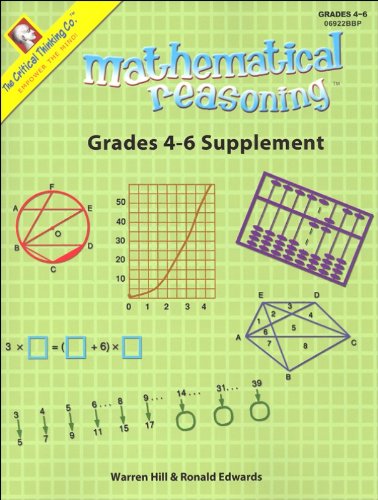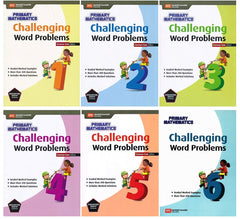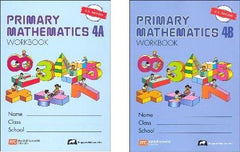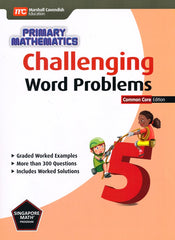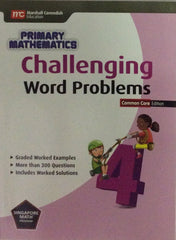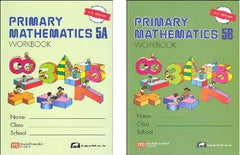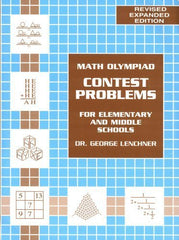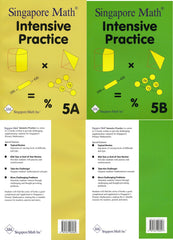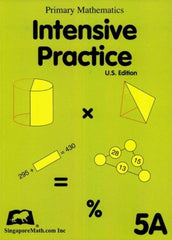No products in the cart.
Mathematical Reasoning, Grades 4-6 Supplement
This 320-page book develops investigative, analytical, and explanatory skills as well as a variety of quantitative and spatial relationships that are an essential part of the foundation of mathematics.
Students who successfully complete this book will see gains in vocabulary development, observational skills, and the ability to process mathematical concepts on a much higher level. The activities are arranged in six sections which address six major strands in the elementary mathematics curriculum.
Number and Numeration
Discussion and analysis of numeration, comparison, equivalent forms, and estimation.
Geometry
Description, classification, and construction of polygons; composition and decomposition of figures; transformation of figures in a plane; tracing networks.
Operations
Builds on number and numeration using conceptual development of multiplication and division. Applies these operations in problem solving. Use of parenthesis in computation, divisibility of whole numbers, and flowcharting.
Measurement
Integrates number and geometry concepts using length, area, and volume.
Relations
Uses order, number patterns, and functions to explore number relations.
Tables and Graphs
Involves organizing, displaying, and using data in a various formats.
Students who successfully complete this book will see gains in vocabulary development, observational skills, and the ability to process mathematical concepts on a much higher level. The activities are arranged in six sections which address six major strands in the elementary mathematics curriculum.
Number and Numeration
Discussion and analysis of numeration, comparison, equivalent forms, and estimation.
Geometry
Description, classification, and construction of polygons; composition and decomposition of figures; transformation of figures in a plane; tracing networks.
Operations
Builds on number and numeration using conceptual development of multiplication and division. Applies these operations in problem solving. Use of parenthesis in computation, divisibility of whole numbers, and flowcharting.
Measurement
Integrates number and geometry concepts using length, area, and volume.
Relations
Uses order, number patterns, and functions to explore number relations.
Tables and Graphs
Involves organizing, displaying, and using data in a various formats.

